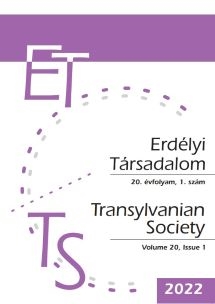Vallási képlékenység a magyar társadalomban
Religious Plasticity in Hungarian Society
Author(s): Tamás LászlóSubject(s): Christian Theology and Religion, Sociology of Religion
Published by: Presa Universitara Clujeana
Keywords: plastic religiosity; religiosity indicators; cluster analysis; empty marker;
Summary/Abstract: In 2017, the Századvég Foundation conducted a large sample survey. One of our main objectives in analysing the data was to get a differentiated picture of those groups in society for whom religion does not play the role of an „empty marker”, i.e. for whom it does not have an identity-forming significance as a single unified phenomenon in their lives. A key issue was to map the diverse attitudes of this heterogeneous group of people, taking into account the distancing, insensitivities and receptivities of each stratum, as well as their sociodemographic characteristics. According to our measurement, 63.2 per cent of the Hungarian society is made up of people with a malleable religiousness. We have identified a total of ten clusters of people with malleable religiosity (desire-religious, experience seekers, routine seekers, support seekers, church supporters, church avoiders, religion consumers, loneliness seekers, God seekers, charity seekers).
Journal: Erdélyi Társadalom
- Issue Year: 20/2022
- Issue No: 01
- Page Range: 97-116
- Page Count: 20
- Language: Hungarian

